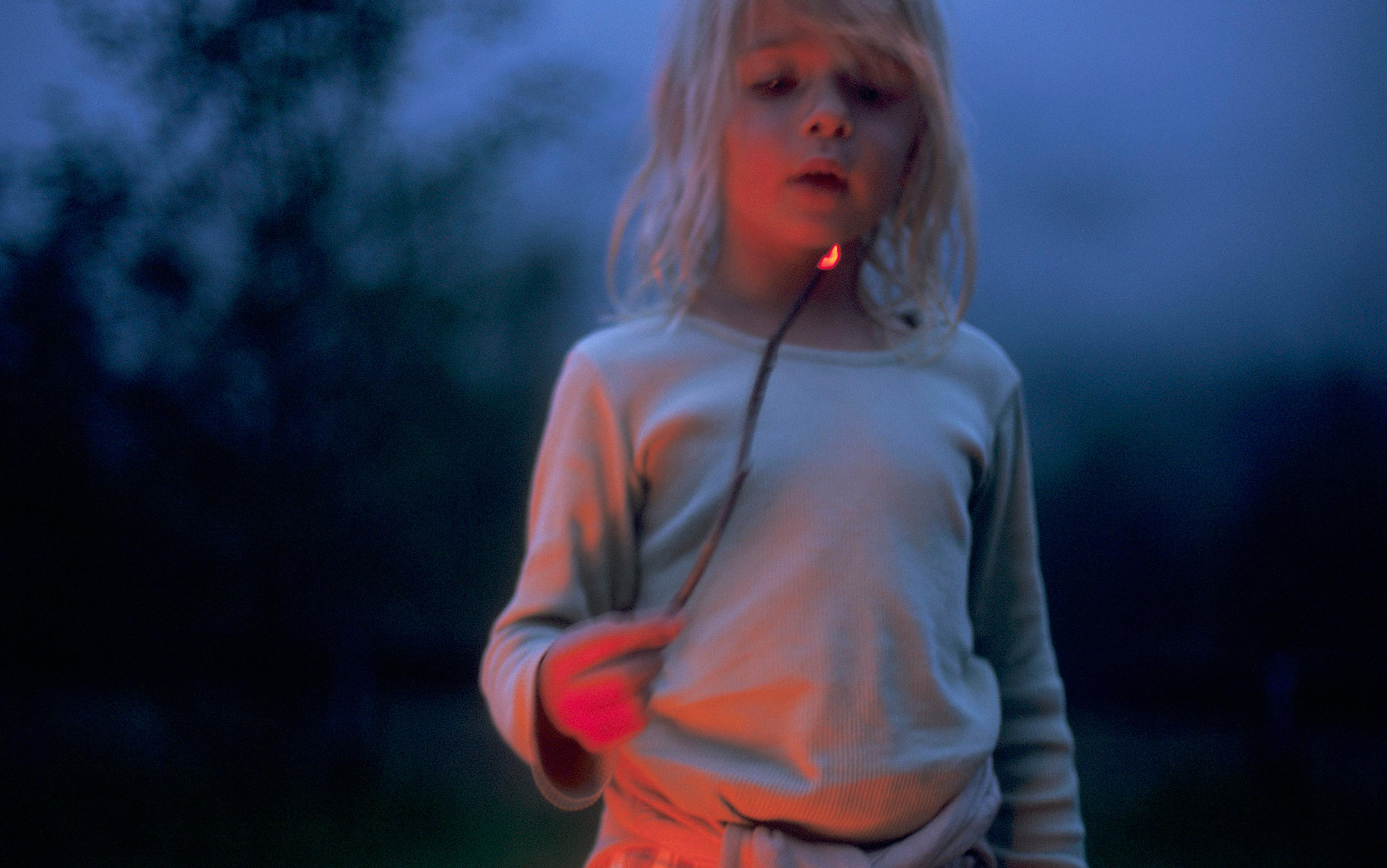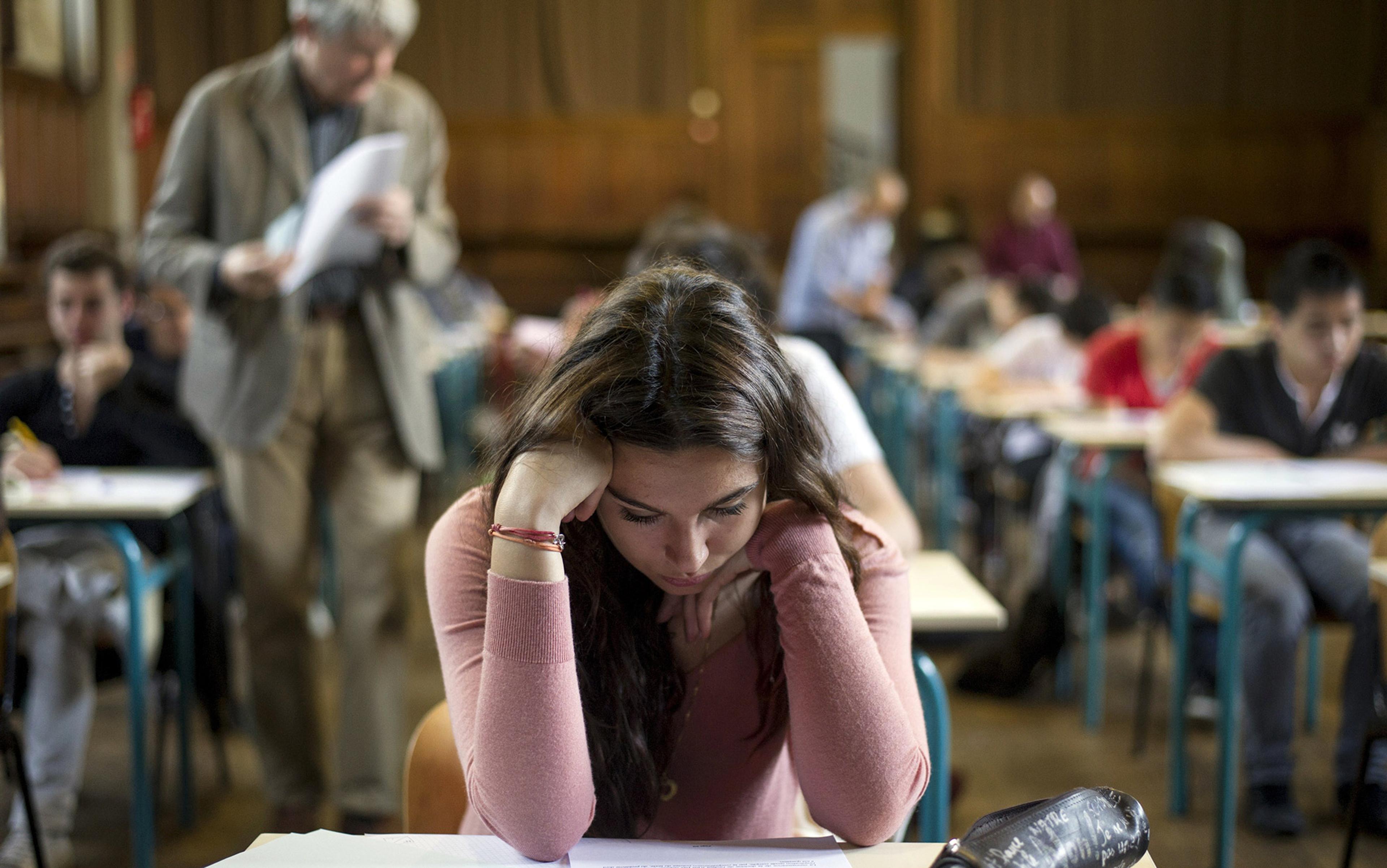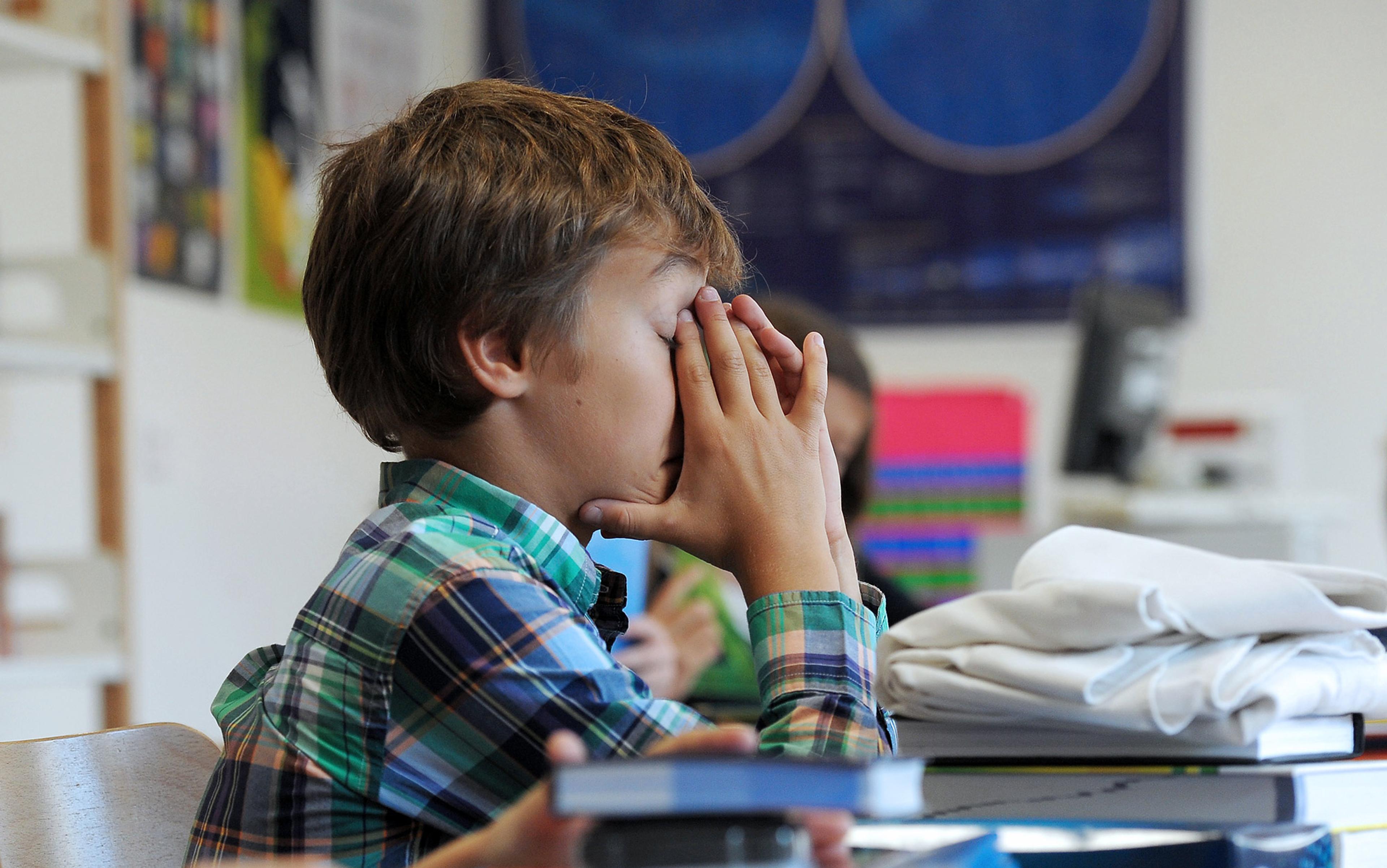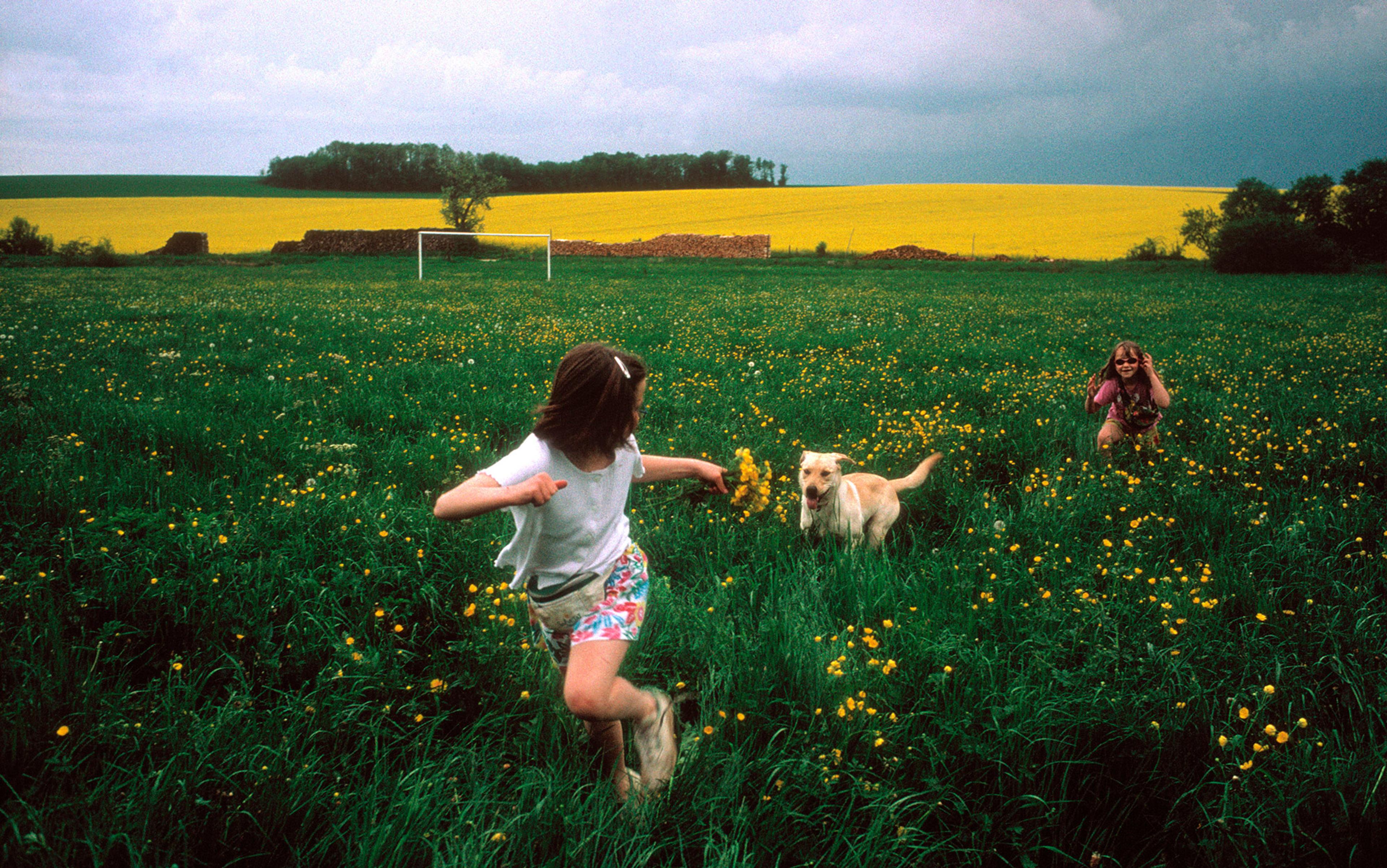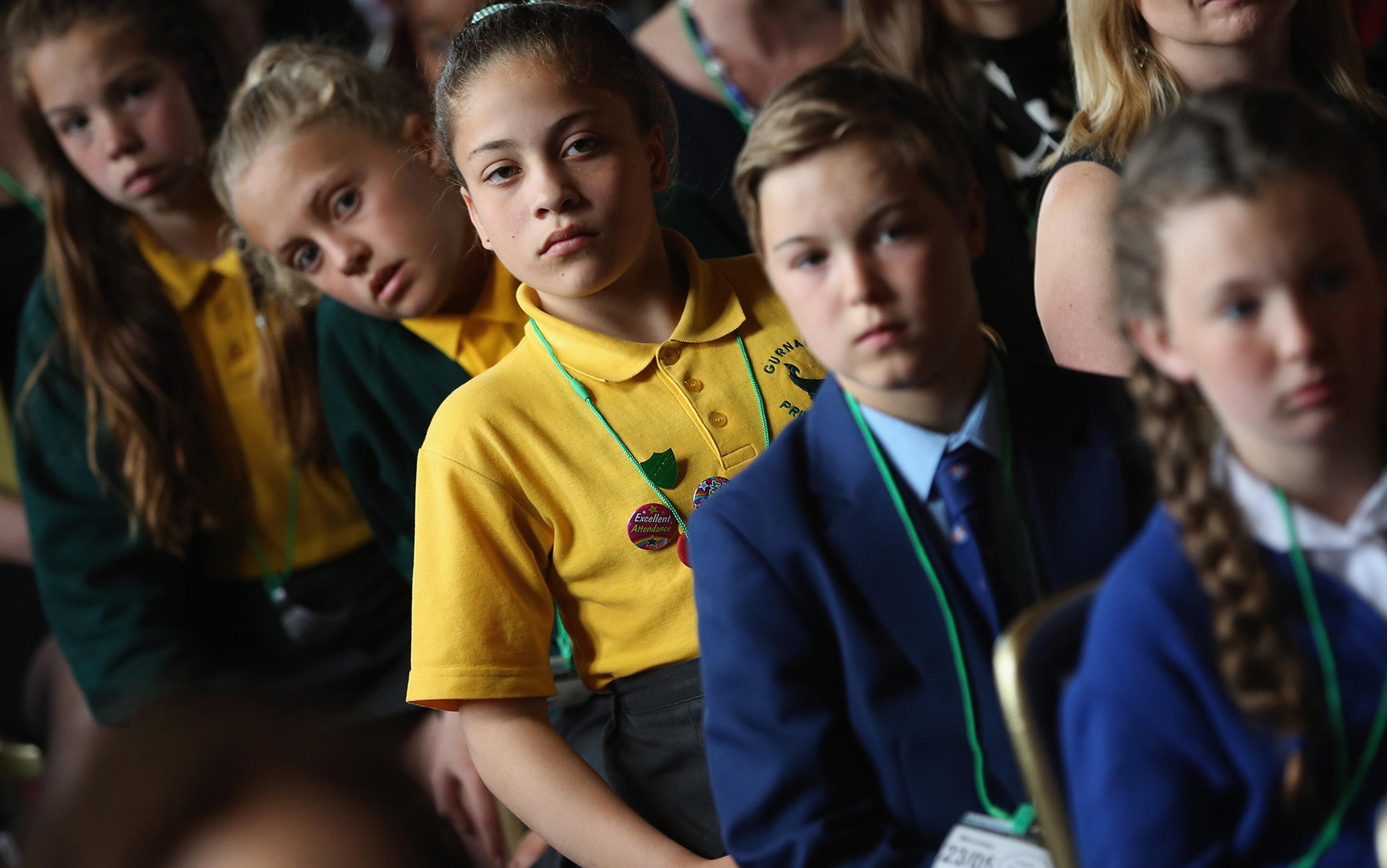We live in a morally bashful age. Perish the thought that anyone might try to impose their values on anyone else. Trying to ‘adopt the moral high ground’ sounds, to modern ears, arrogant or hubristic. You risk becoming a figure of fun, like a Speakers’ Corner tub-thumper. Education colludes with this squeamishness by pretending that the only serious questions it faces are technical ones, such as how are we going to raise standards? Or what are the most appropriate methods for testing students, and when, and how much? And should we have an ‘English Baccalaureate’, or a six-term year?
But this coyness is both weaselly and pusillanimous. Education is essentially a moral enterprise. Whether overtly or covertly, every aspect of a school system is riddled with value judgements about what is worth knowing, and what kinds of young people we are trying to turn out. Words such as ‘standards’ and ‘appropriate’ merely finesse the underlying moral questions. They have only the appearance of neutrality, for we only need ask ‘standards of what?’ or ‘appropriate to what end?’ for their value-laden nature to be hauled to the surface. Only if we assume that standards refer, self-evidently, to performance on national tests — with a sprinkling of statistics about attendance and exclusions — do the moral questions seem to disappear.
Despite occasional bursts of rhetoric about developing that mysterious beast ‘the world class workforce’, the goal of most education ministers turns out to be beating Singapore or Finland in the tables of PISA, the Program for International Student Assessment: in other words, to keep racking up the test scores, without stopping to think what those scores are meant to indicate. Examination results are proxies for our underlying values and intentions, not ends in themselves. Most of what kids learn in school they forget within weeks of having taken the test. As Einstein said, ‘Education is what remains after you have forgotten everything you learnt in school.’ So what are the valuable residues which we want for all our young people after those 12 long years in school? On this question, there is, from many current governments, a deafening silence or, at best, a feeble voice saying ‘a place at your chosen university’, as if this were something to which all students should aspire (despite there being places for only just over half of them in the UK).
Politicians are not alone. I give many talks to head teachers, and I often put this situation to them. Imagine you run into a young man who left your secondary school a couple of years ago. He stops you and, out of the blue, thanks you for the wonderful education you gave him. You are puzzled, because you recall that he only scraped two poor GCSEs. So you suggest that he must be referring to the friendships he made, or to his part in the very successful school production of War Horse. True, he says, but that’s not what I meant — I was talking about the core education I got. And now you really are at a loss, and you ask him what he means. What does he say?
If we can’t imagine a clear answer to this question, I think we are morally lazy, and probably corrupt — don’t you? If, after 100 years of tinkering and innovation, roughly half of all young people still don’t get a decent secondary qualification, if millions of school-leavers still can’t read well and thousands of students vote with their feet every day (not because they are inherently lazy or stupid, but because they can see no value in what school is offering) then surely it is time for a deeper look at the aims and values of education.
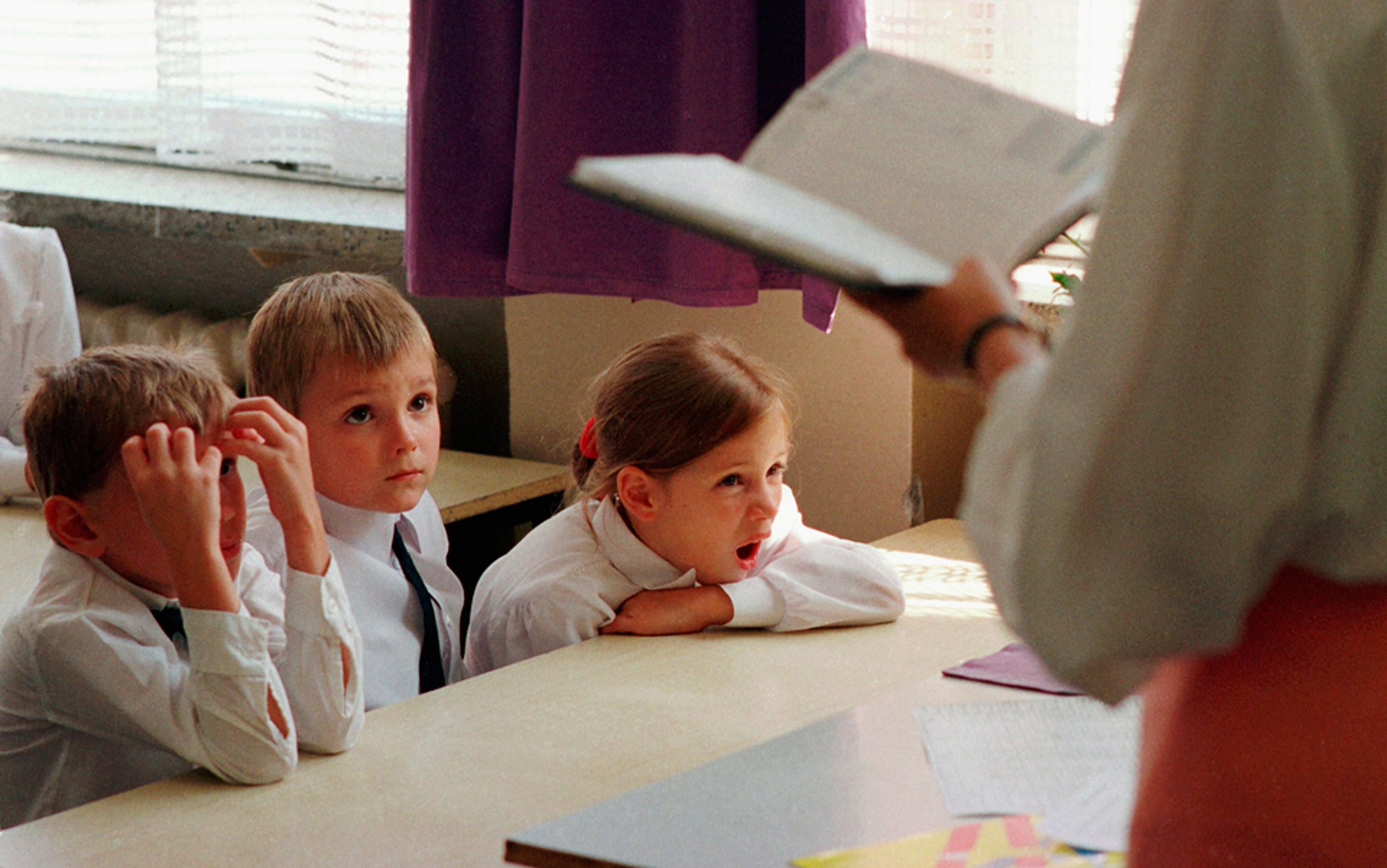
The idea that schools are more or less as they must be, and it is just a shame that so many youngsters lack the ability to do well at them, is an anachronism, an apology for the status quo, which in any case has been shot dead by the contemporary science of intelligence. Genes establish only a wide range of possible intellectual development; where you end up is determined largely by experience. Lauren Resnick, director of the Institute of Learning at the University of Pittsburgh, defines intelligence merely as ‘the sum total of one’s habits of mind.’ Ability is not fixed, it is elastic, and your environment either stretches it or not. If teachers continue to believe in theories of fixed intelligence, they won’t look for ways to stretch it and the belief becomes a self-fulfilling prophecy.
Actually, it’s worse than that. If youngsters pick up the belief in fixed ability, the self-fulfilling prophecy gets installed in their own minds like a computer virus. Studies by Carol Dweck, professor of psychology at Stanford, have shown that this virus damages students’ own ability to learn. They attribute failure to lack of ability, so they simply stop trying.
If you have been taught to think of yourself as ‘low ability’, it’s obvious that your life chances are going to be damaged and dampened. For the many school leavers convinced that they are bad at learning, the social and economic as well as the personal costs are incalculable, and unforgivable. But high-achievers suffer from this virus too. Student counsellors at Oxford and Cambridge are seeing a growing procession of unhappy undergraduates who feel fraudulent — and therefore anxious or depressed — when the work gets harder and they start to struggle. They have not learnt how to ‘flounder intelligently’; indeed, they have been systematically deprived of opportunities to learn how to be resilient and resourceful by well-intentioned teachers who have spoon-fed, coaxed and cajoled them into their results.
We no longer want to be associated with a school system that sorts children into ‘winners’ and ‘losers’
The fact is, education has always been about more than knowledge manipulation and test scores. It is also, inevitably, about the formation of character. Schools are cultures that are saturated with values: who to admire; what to respect; what is worth knowing; who has a right to question what; where is the line between imagination and silliness, or teasing and bullying; and so on. And it is not in the School Rules that these judgements live; it is in the minutiae of daily interactions with teachers and older students, who demonstrate through their behaviour and their expressions what is worth noticing and what is to be treated with silent contempt; what is ‘cool’ and what is ‘babyish’; what is ‘funny’ and what is ‘insolent.’
Inevitably, some habits are valued and encouraged, and others disdained or ignored. To be a school student is to undergo a protracted social apprenticeship. If, by their actions, teachers repeatedly value politeness over creativity, or being correct over trying something new, that is a value choice. As we cannot avoid making value choices, it behoves all of us in education to make these choices consciously and thoughtfully, in the light of a coherent sense of the purpose of education in and for the 21st century. Dropping Dickens in favour of JK Rowling is not the point. We need to decide whether we, by our actions, value neatness over the discerning consumption of internet-based information, or favour resilience over honour. That debate gets sidelined by a focus on tests and standards. And in its absence, ministers tinker with the peripherals, trying to make marginally more efficient a system that may not — as many people are now saying — be fit for purpose at all.
In the 19th century, they didn’t pussy-foot around. The elite private schools talked happily of developing qualities such as team spirit, fair play, judgment and rationality. They produced young men who could outwit an enemy, conduct a trial, preach a sermon and hold their own at High Table in a discussion of arcane subjects. And it was naturally assumed that, as we only needed so many Leaders and a great many more Followers, so mass education (for the followers) sought to develop a complementary character: obedient, punctual, punctilious, honest, tidy and clean, as well as possessing a degree of basic literacy and numeracy.
Nowadays, quite rightly, we no longer want to be associated with a school system that sorted children so obviously and so divisively into potential ‘winners’ and ‘losers’ and trained their characters differentially, so we have become nervous about talking about character formation at all. But the problem is not in talking about character per se. It was only the particular sets of valued characteristics that needed challenging and updating. Since schools can’t avoid being in the character-forming business the only questions now are: which characteristics should we value? And how are we going to cultivate them, not just at the level of rhetoric and fond hopes, but deliberately, systematically and demonstrably?
Broadly, contemporary societies seem to care about three things: national prosperity, social cohesion and stability, and personal well-being. But the personal attitudes that will lead towards these three ‘goods’ are not eternal: they depend on the nature of the world. So even if those three aspirations are taken for granted, educational values — the traits that we want to develop in young people — will vary. We need to think about the world in which we want our children to flourish before we can say what qualities they are likely to need. Education should not be driven by a dogmatically-held set of eternal verities, but by a clear-sighted look at what the demands, uncertainties, risks and opportunities of the future will be. Merely to assert the value of Latin translation or the Periodic Table, in the face of these challenges, is a cop-out. It is a refusal to do the intellectual, moral and imaginative work that is needed.
There are a good many educational organisations around the world where this re-imagining has started to take place. In the past 10 years, some specifications have been produced by individual schools; some by national education systems; some by researchers in the rapidly growing fields of positive psychology and the learning sciences; and some by commercial or not-for-profit organisations. At the British independent school Wellington College the five ‘core values’ of kindness, courage, integrity, respect and responsibility are complemented by the ‘eight aptitudes of learning’ (derived from Howard Gardner’s ‘multiple intelligences’): linguistic, logical, cultural, physical, spiritual, moral, personal and social. New Zealand wants all young Kiwis to become ‘confident, connected, actively involved lifelong learners.’ Singapore is committed to producing youngsters who are ‘creative and imaginative’ and ‘able to think, reason and deal confidently with the future.’ In 2009 the lower secondary curriculum in England was reorganised to create young people who would be ‘independent enquirers, effective participants, reflective learners, team workers, self-managers and creative thinkers.’
Organisations such as the International Baccalaureate have developed a set of desirable traits they call the Learner Profile. It wants all students to develop the dispositions to be ‘naturally curious, to exercise initiative, to express ideas confidently, to approach unfamiliar situations without anxiety, to show integrity and honesty, to be sensitive towards the needs and feelings of others, to be open-minded, to be well-balanced, and to be reflective.’ An offshoot of Martin Seligman’s positive psychology movement called ‘Values in Action’ names 24 ‘character strength and virtues’ on which education should be based.
Despite the diversity, there is a fair amount of overlap between all these lists. Broadly, there are two sets of widely-agreed virtues which we might call the prosocial and the epistemic. The prosocial virtues tend to include honesty, trustworthiness, tolerance, conviviality, kindness, lack of hubris and ecological responsibility. They recognise the globalised and multicultural nature of the modern world, and stress virtues of social harmony, as well as those of the responsible employee. The set of such values borrows from, but also differs from, the virtues of the 19th century. Deference and cleanliness tend not to appear these days.
It is the other set, the epistemic virtues to do with thinking, learning and knowledge, that would have been truly unrecognisable in both the Eton College and the Bash Street Elementary School of a hundred years ago. These virtues are deeply responsive to the turbulent global and digital world in which children find themselves. They are focused on uncertainty and the need to learn, and are increasingly seen as relevant to all young people.

It is a cliché that we live in times of escalating uncertainty, complexity, ambiguity, choice and individual responsibility. Through the electronic media, children are daily bombarded with conflicting models of what to value and how to live. Their communities often fail to offer strong unanimous guidance about how to choose wisely, or little that they are willing to heed. It is also increasingly obvious that young people (especially in the UK, according to recent reports) are not coping well with this freedom and diversity. Classic symptoms of stress — escapism, recklessness, drug abuse, anxiety, depression, self-doubt — are high across the whole social spectrum. If stress reflects a widening gap between the demands of one’s life and the resources one has to cope, many young people are clearly feeling badly under-resourced. As the core function of education is precisely to develop the mental and emotional resources that young people need to cope well with the real demands of their real lives, it is clearly not doing its job. Those resources are psychological as much as they are material or social. This is surely the heart of the question of what schools are for.
Sadly, these vital national and global conversations are still at a vulnerable stage of development. As rapidly as these lists of honourable aims emerge, so they seem to get sidelined. Cynics find it easy to poke fun at them. They assume that because it is hard to put such good intentions into practice they are intrinsically laughable. Teachers are sometimes bewildered as to exactly what is being asked of them. ‘How, exactly, are you asking me to be different?’ is a question that has rarely been given a good answer. The language in which these aspirations are couched has often been vague and highfalutin’. Not many parents immediately understand the need for their children to develop ‘metacognitive awareness’ or ‘autonomous agency.’
Some of these attempts have been derailed by rightward shifts of governments, with their talk of going ‘back to basics’ (though they never do go back to the real basics, to the fundamental purpose of school in the modern world). Of course it is more difficult to demonstrate growth in a young person’s kindness, or their ability to concentrate, than it is to give them a score on sums or reading. And of course some of the pioneering attempts to update the character curriculum for the 21st century have been a bit woolly or grandiose. But, as my dad used to say, if a job’s worth doing, it is worth doing badly (at first), then learning from your mistakes and gradually doing it better. That is the stage we are in right now, as we tinker our way towards a genuinely 21st century education. We shouldn’t give up now.
How do we make schools into a kind of ‘virtue gym’ where students get to practise their mental fitness, not just talk about it?
One of the things we have learnt is that getting the language right is important. Too often character aspirations are so vague that they are pretty vacuous. Does ‘respecting the environment’ mean lobbying the G8? Demanding James Lovelock come and talk to the school? Insisting that school-meals are organic? Or merely watching An Inconvenient Truth, not dropping litter, and grudging trips to the bottle bank? Is it always a good idea to ‘approach unfamiliar situations without anxiety’? Throwing rocks at an old bomb on a beach is not so smart. Is it always good to ‘persist in the face of difficulty’? I certainly wish I had learnt earlier in my life that it was OK to leave unrewarding books unfinished. The virtues we want for children have to be clearly enough expressed that they can think about them, not just obey them, and can easily relate them to their own experience.
If education is to change, it will not be simply by government fiat. It will be because thousands of young people and their families and teachers understand the value of the changes and start to demand them with greater urgency. We need to communicate the real practical rewards of cultivating virtues like tolerance and patience: being grateful and kind are strongly correlated with measures of well-being and life satisfaction. Crudely, nicer people are happier people. Everyone needs to know that.
More urgently still, we need good ways of talking about the epistemic virtues in particular: the habits and qualities of mind that make someone a confident, powerful learner (and words like ‘prosocial’ and ‘epistemic’ are not the right ones to use on parents’ evenings). It is impossible to ‘improve’ the running of schools unless we have a clear idea of what those virtues are, and we need an agreed vocabulary to do that. Without that clarity, all educational innovation falls back obsessively on ‘raising standards’ as traditionally, and inadequately, defined.
In my book What’s the Point of School? (2008) I had a stab at describing the virtues that make people good at coping with uncertainty and complexity. Since then, I’ve been refining my ideas as I’ve worked with hundreds of schools and thousands of teachers around the world through the Building Learning Power program. Some of my virtues are drawn from the research that lies behind positive psychology; some are derived from asking teachers and young people themselves; and some are suggested by the burgeoning literature of the learning sciences.
I think it is important that the virtues of uncertainty are broad enough to take beyond the school gates: that, surely, is the point of learning how to learn. Dealing with the real uncertainties of modern life, and developing one’s own passionate interests and avocations, are usually not at all like school. The carefully planned, predigested, sequenced and graded kinds of bite-size learning in which conventional schooling trades are not the kinds of learning for which young people need to be prepared. An apprenticeship in passing exams leaves even the most successful with a skill for which there is little call once they have left university. Few job adverts specify that applicants ‘must be able to sit still, copy down notes, and regurgitate disembedded chunks of information under pressure.’ So what are the learning virtues that I think are most important? There are eight:
1. Curiosity is the starting point. If you are not interested in things that are difficult or puzzling, you won’t engage. Curious people have an abiding sense of inquisitiveness. They wonder how things come to be, how they work, whether they might be otherwise. They live in a wonder-full world, not a world of dead certainties and cut-and-dried rules. They know how to ask good, pertinent, penetrating questions. They have a healthy scepticism about what they are told.
2. Young people surely need courage; not necessarily physical valour but the capacity to be up for a challenge, to be willing to take a risk and see what happens, not always playing it safe and sticking to things they know they can do. Courageous learners have the determination to stick with things that are hard, (although it is also a virtue to know when to quit, not because you are feeling stupid but because it really isn’t worth it). They bounce back from frustration; they don’t stay floored for long.
3. Exploration is the active counterpart of curiosity. Inquisitive people enjoy the process of finding things out, of researching (whether it be footballers’ lives or particle physics). They like reading, but they also enjoy just looking at things, letting details and patterns emerge. They can let themselves get immersed in a book or a game; absorption in learning is often a pleasure. They can concentrate. They like sifting and evaluating ‘evidence’, not just reading or surfing the net uncritically, and their exploration usually breeds more questions. Explorers are also good at finding, making or capitalising on resources (tools, sources of information, people) that will support their investigations.
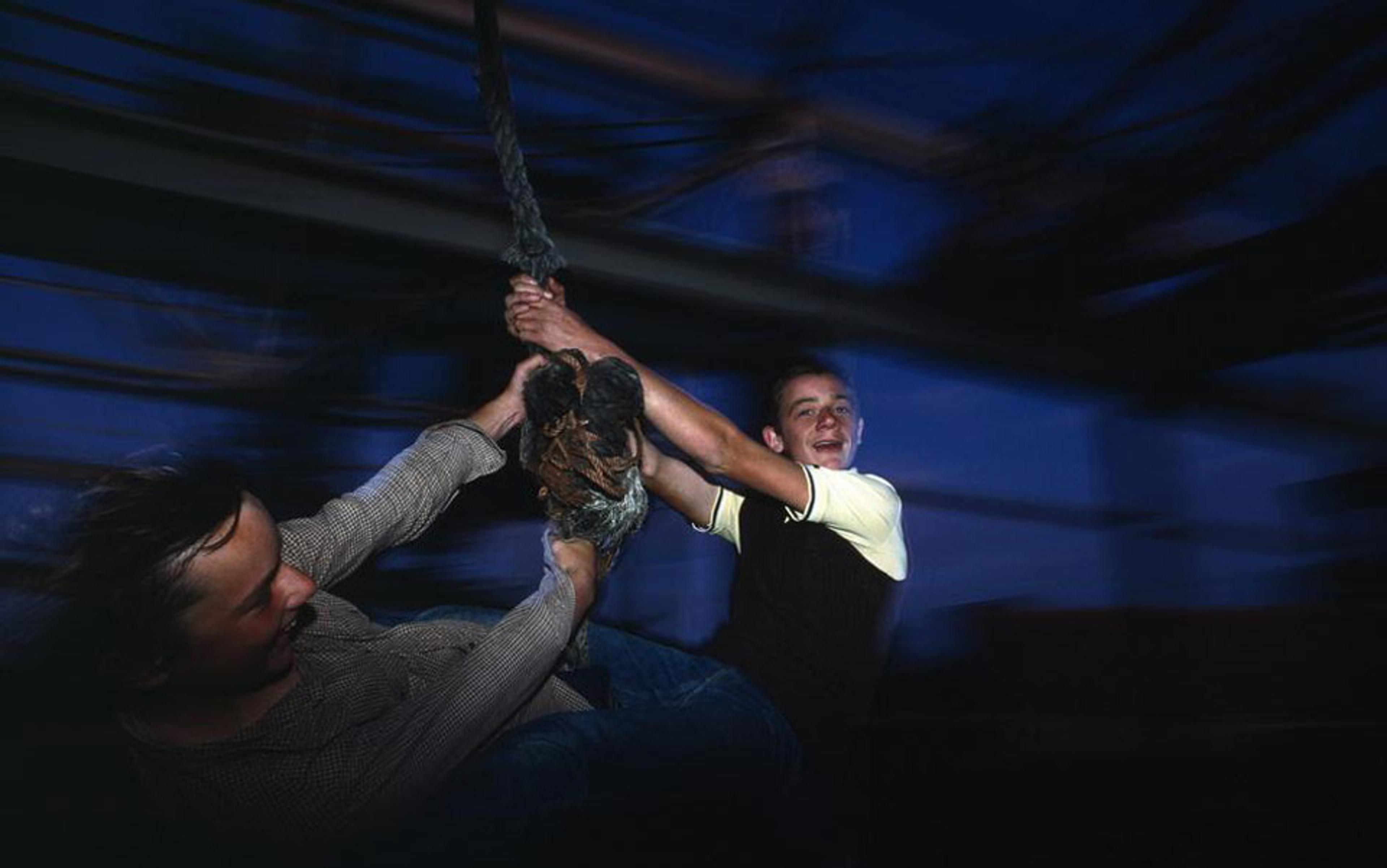
4. Experimentation is the virtue of the practical inventor, actively trying things out to see if they work. Experimenters like tinkering, tuning and looking for small improvements. They don’t have to have a grand, ostensibly foolproof scheme before they try something out; they are at home with trial and error. They spend a good deal of time just playing with materials — paint, cogs, computer graphics — to see what they will do, uncovering new ‘affordances.’ They are happy practising, they enjoy drafting and redrafting, looking at what they’ve produced — a garden bed, an essay, a melody — and thinking about how they could build on and improve their own products and performances.
5. Imagination is the virtue of fantasy, of using the inner world as a test-bed for ideas and as a theatre of possibilities. Good imaginers have the virtue of dreaminess: they know when and how to make use of reverie, how to let ideas come to them. They have a mixture of healthy respect and sceptical appraisal toward their own hunches and intuitions. They use mental rehearsal to develop their skills and readiness for tricky situations. They like finding links and making connections inside their own minds. They use imagery and metaphor in their thinking.
6. The creativity of imagination needs to be yoked to the virtue of discipline; of being able to think carefully, rigorously and methodically, as well as to take an imaginative leap. Reason isn’t the be-all and end-all of learning by any means, but the ability to follow a rigorous train of thought, and to spot the holes in someone else’s argument, as well as your own, is invaluable. Disciplined learners can create plans and forms of structure and organisation which support the painstaking ‘crafting’ of things that usually needs to follow the ‘brainwave.’
7. The virtue of sociability, and of judiciously balancing sociability with solitariness, also seems essential. Effective learners know who to talk to (and who not), and when to talk (and when to keep silent) about their own learning. And they are good members of groups: they know how to listen, how to take turns, what kinds of contribution are helpful. They have the knack of being able to give their views and hold their own in debate, and at the same time stay open-minded to and respectful of others’ views: of giving feedback and suggestions skilfully and receiving them graciously. They are generous in sharing information, ideas and useful ways of thinking and exploring; and they are keen to pick up useful perspectives and strategies from others.
8. Finally there is the virtue of mindfulness, in the sense of being disposed to reflection and contemplation, taking time to mull things over, take stock and consider alternative strategies. Not paralysed by self-consciousness but capable of self-awareness, reflective learners can take a step back every so often and question their own priorities and assumptions. Thinking about your own thinking isn’t always useful (despite the current fad for ‘metacognition’) but it is needed at strategic moments. Mindfulness means giving yourself the time to go deeper, to see what conclusions you may have leapt to, and let a bigger picture emerge.
This list is merely a provocation, an invitation to argue. I’d like to hear suggestions for how it can be improved. But I hope it sounds plausible, even fruitful, both to 11-year-olds struggling with French and 55-year-olds struggling with golf or postmodernism; to people who think and intellectualise their learning a lot, and those who don’t; to people who work at Aardman Animations, Manchester City, Goldman Sachs — and at the local hairdresser’s, motor mechanic’s, or school. No doubt the list can be improved, but as Samuel Beckett said, ‘Try again. Fail again. Fail better.’
The big question is: how do we put these kinds of virtues in action? What does it take for schools to become systematic incubators of learning virtues, so that their students graduate, whatever their grades, with deep-seated habits of curiosity, courage and the rest? How do we make schools into a kind of ‘virtue gym’ where students get to practise their mental fitness, not just talk about it? To answer this question, we need first to weed out what doesn’t work.
First, those moral exhortations (much beloved of head teachers on what used to be called speech days) have proven ineffective. Merely talking about ‘character’, desirable though that vocabulary is, does not cultivate the sought-after characteristics, any more than sticking labels on a pig’s ears, legs and tail helps it to grow. Being able to discuss, defend and even agree with the importance of a particular virtue is no guarantee that one will manifest it in practice. For example, when a group of young people were given tests of their moral reasoning ability, their results did not correlate at all with their actual level of antisocial behaviour. Troubled teenagers might be perfectly able to ‘tell right from wrong’; they just don’t choose the ‘right’ option in the heat of the moment. Knowledge and belief get trumped by habit and impulse all the time.
Just as with moral habits, so with learning itself. While being able to talk about the nature of good thinking is useful, merely being able to do so does not necessarily make you a better thinker. I have watched lessons in which, for example, youngsters have been parroting Howard Gardner’s theory of multiple intelligences without any evidence that any of them have become the slightest bit more multiply intelligent. We are all, as one of my students put it so eloquently, ‘knowledgeable about things we are crap at.’
Another thing that doesn’t work, in cultivating these learning habits, is little set-piece workshops or activities that are bolted on to ‘business as usual.’ Research on Thinking Skills programmes, for example, shows that, while such activities are often enjoyed and appreciated by students, their benefits may neither last nor spread to other areas of their learning lives in or out of school. It is no use merely tacking on an interesting looking course of ‘problem solving’ or ‘learning to learn’ if the other 95 per cent of students’ time continues to be spent learning to be passive and credulous.
The relative ineffectiveness of the skills training approach is exemplified by the disappointing results of the UK Resilience Programme. Based on a much hyped programme designed by the University of Pennsylvania, the package, launched in 2007, comprised a set of lessons and workshops aimed at helping young teenagers become more able to face challenges in school and in their lives. The final evaluation of the program in 2011 found that the beneficial effects of the workshops generally lasted only as long as they were continued, and had faded away a year later — except in the case of the most vulnerable and lowest-achieving youngsters. The disappointing impact was put down, by the researchers, to the ‘over-didactic’ and ‘bolt-on’ nature of the interventions.
The thing is, virtues are not just skills, they are also habits or dispositions. Possessing the virtue of curiosity does not simply mean that you have the ability to ask good questions when someone prompts you. It means having a questioning frame of mind. The goal of character education cannot be merely to train skills. A skill is something you can do; not necessarily something that you are constitutionally disposed to do. A virtuous school has to be more than a ‘training’ institution; it has to be an incubator that develops and strengthens the desired qualities of mind through everything it does.
So, how do teachers strengthen youngsters’ curiosity? Asking what puzzles them is a good start. Greet them on a Monday morning by saying, ‘Who found a really good question over the weekend?’ Have a ‘wonder wall’ full of sticky notes that capture the children’s questions. Ask your secondary science class to ‘think like scientists’ and generate new hypotheses, and new questions, based on the experimental results they have just collected.
What about courage and determination? Encourage students to think of difficulty as a challenge rather than a threat. Don’t let them think that finding something difficult is a sign of stupidity. (Darwin and Einstein were both notoriously slow learners. When faced with something genuinely tricky, slow can be the most intelligent approach!). Don’t think you are being kind by rescuing pupils from difficulty and frustration: you are merely reinforcing the idea that ‘sticking with difficulty’ is fearful rather than exciting.
How do we build the habits and capabilities of the explorer? If we give children more resource-based projects, they have to learn how to do their own research and find their own resources. We can encourage them to question the knowledge claims they meet — in textbooks as much as in TV advertisements — and gradually build the habit of respectful, intelligent scepticism about what they read on Wikipedia or in the newspaper.
Experimentation? Give students the opportunity to think about how to evaluate and improve work for themselves, both individually and collaboratively. Talk to them about the trials, travails, conflicts and uncertainties that lay behind the discoveries of Galileo and Newton, and the hard work and many drafts that ended in the waste-paper basket on the way to ‘All the world’s a stage’, ‘I wandered lonely as a cloud’ or the scripts for Fawlty Towers or The Office. Science students who are told about these struggles have been shown to remember information better and use it more effectively to solve problems.
Imagination too can be taught. Creative people are those who have learnt the knack of toggling between linear, purposeful kinds of thought, and mental modes that are more dreamy and imaginative. Schools have been based on bad psychology, where they have presumed that imagination and visualisation are childish or immature ways of knowing, to be superseded, as rapidly as possible, by those that are deliberate and articulate. Children can be given the chance, as one little girl put it to me, ‘to let our brains cool down so they will bubble up with new ideas.’
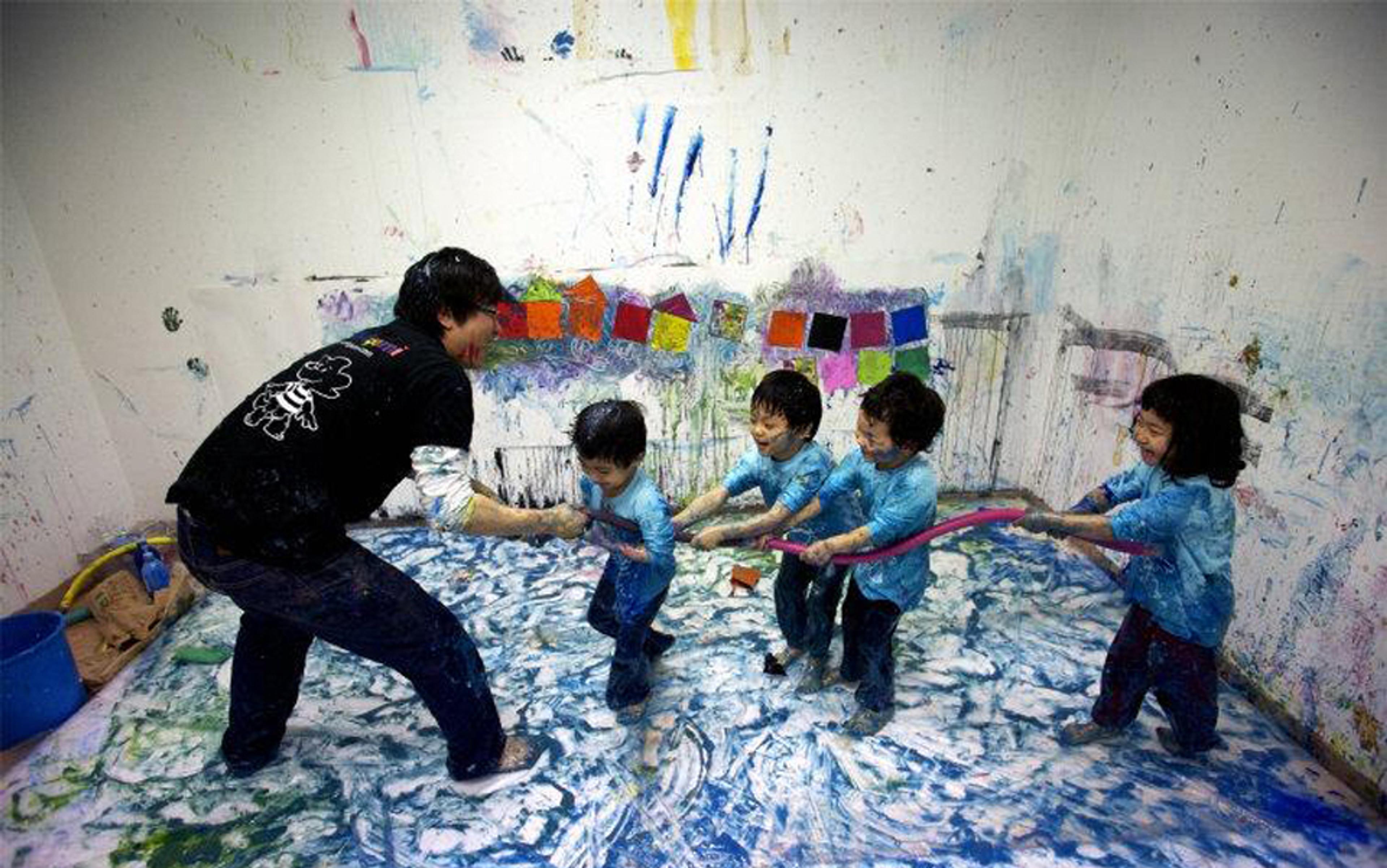
Naturally we need to help students develop the discipline of being able to plan, think things through carefully, anticipate consequences, and apply the painstaking skills of crafting that lead to a satisfying essay, proof, bird-box or painting. The American teacher Ron Berger, in his marvellous book An Ethic of Excellence, has shown how even low-achieving or demoralised students can be helped, through the ethos of the school, to develop a craftsmanlike attitude to their work, and a pride in having produced something to the best of their ability.
How do we teach sociability? One teacher I know regularly has her students decide, after being given a task, whether they want to pursue it on their own, with a small group of peers, or in a group with her. Afterwards, they reflect in their ‘learning journal’ on whether they thought they had made the right choice or not, and why. Another primary schoolteacher has a class that regularly changes the size and constitution of the groups they are working in because ‘when we are grown up, we will have to get on with all sorts of people, not just our friends, so we want learn how to do that now.’
Finally, how do we teach mindfulness and reflection? Keeping a journal gives pupils time to ruminate and, as another student put it, ‘to suck the juice out of our experience, so we will learn from our choices and mistakes, and so make quicker progress.’ Through small exercises and gentle reminders, a teacher can get her students into the habit of regularly standing back, taking stock, and thinking about what they are doing: useful life skills in anybody’s book.
The beauty is that all teachers could make these small adjustments to their modus operandi. It does not involve chucking out Shakespeare in order to make time for some nebulous new subject called ‘learning to learn.’ Learning to learn, in these classrooms, becomes a kind of underlay to the more explicitly patterned subject-matter. In spite of what the traditionalists think, there isn’t a trade off between content and learning virtues: the two depend on each other.
The fact of the matter is this: when students are helped to become more confident and articulate about the process of learning itself, they do better, not worse, on the tests. Young people who have been helped to know how to think and persevere take these strengths with them into the examination hall, as well as onto the sports field or the concert stage. With a hundred small adjustments to the milieu of schools and classrooms, we can produce young people who are more confident, capable and enthusiastic about engaging intelligently with difficult things. When we articulate the virtues of uncertainty in clear and concrete terms, we find we can teach in a way that prepares young people both for a life of tests and the tests of life.
For more information please visit www.guyclaxton.com.
